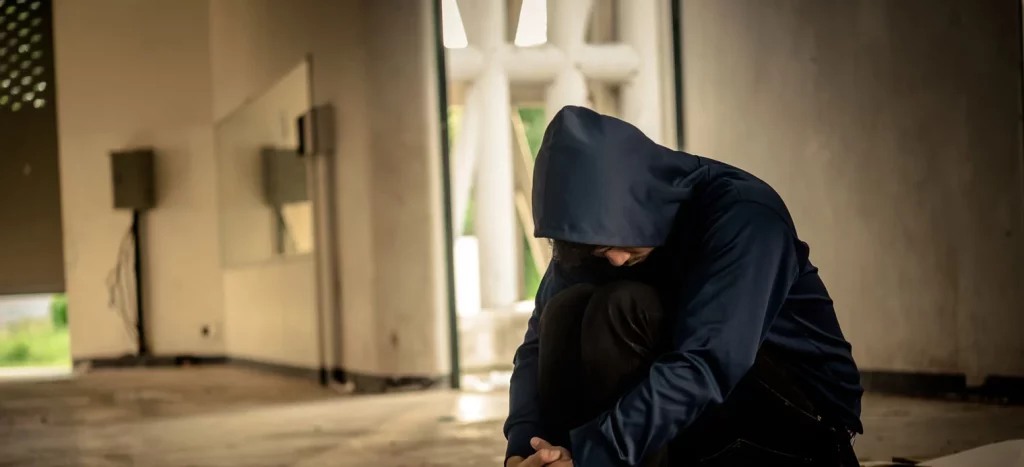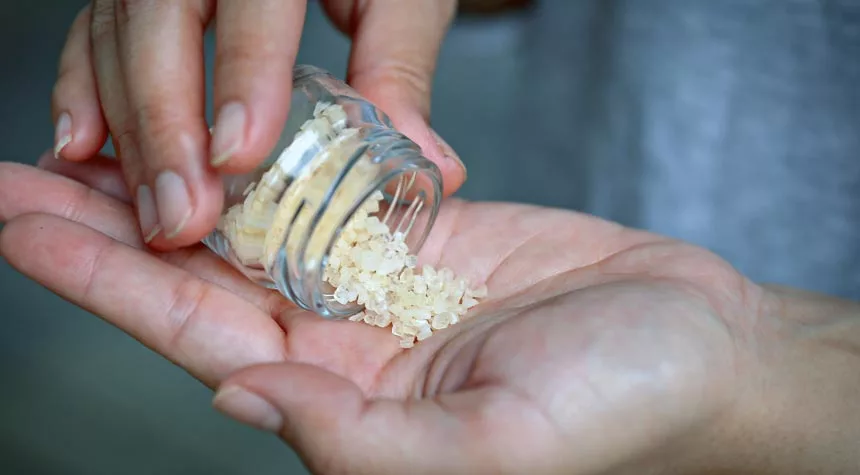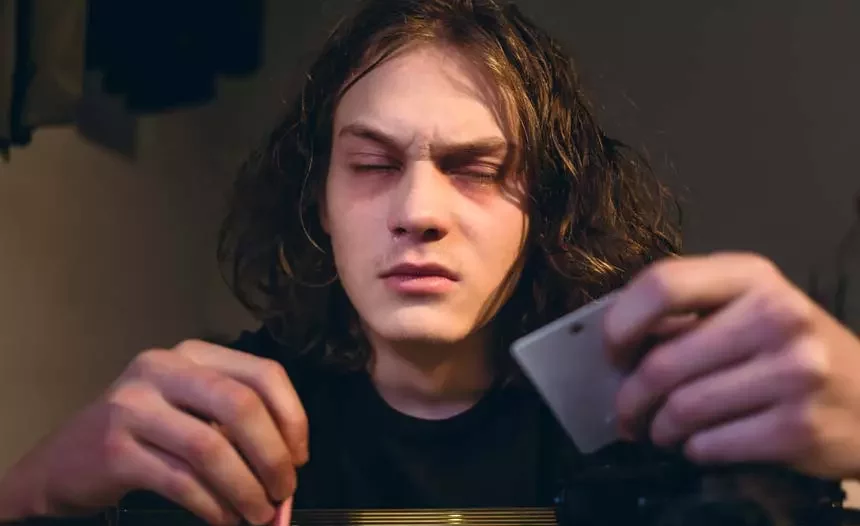What is Flakka?
Table of Contents
- What is Flakka?
- How is Flakka Used?
- The Relationship Between Flakka and Bath Salts
- How Does Flakka Affect the Body?
- Recognizing the Signs of Drug Abuse
- What is Flakka Withdrawal?
- Flakka Withdrawal Symptoms
- Treatment Methods for Flakka Addiction
- Medical Detox for Flakka Abuse
- After Flakka Addiction Detox
- Inpatient Treatment for Flakka Addiction
- Outpatient Treatment for Flakka Addiction
- Behavioral Therapy for Flakka Addiction
- Medication-Assisted Treatment
- Aftercare and Sobriety Beyond Rehab
- Find Flakka Addiction Treatment Near You Now!
- Medically Reviewed By
Flakka and gravel are common names for a-Pyrrolidinopentiophenone (alpha-PVP), an emerging street drug that is part of the synthetic drug Cathinone class, essentially second-generation bath salts. The drug can cause addiction, alongside various forms of flakka withdrawal symptoms when use is stopped.
The substance Cathinone comes from the Khat plant, which is native to Arabia and East Asia, where it is sometimes chewed to achieve a mild stimulative effect. In its synthetic man-made drug form, Flakka is commonly found in the form of a white or pink crystal form.
Keep reading to find out more about flakka and how to avoid the worst withdrawal symptoms from this powerful synthetic drug!
How is Flakka Used?
Flakka use has become increasingly popular throughout the country, particularly in Florida. This street drug is commonly used via injection, oral consumption, and snorting or vaporizing and smoking it.
Furthermore, many people will choose to combine their Flakka use with other drugs in an attempt to prolong or enhance the effects of this designer drug. This, unfortunately, can be extremely dangerous, and significantly increases the user’s risk of developing a drug addiction.
The Relationship Between Flakka and Bath Salts
Flakka is commonly marketed as a combination of heroin with other drugs, mainly crack cocaine and crystal meth. In reality, this dangerous drug is just a newly developed form of illicit drugs known as bath salts.
Bath salts are psychoactive substances, also known as designer drugs, that are made in large batches in unsanctioned and unregulated laboratories. Unfortunately, synthetic drugs take up a large part of the illegal drug market, often holding great risk for their consumers.
This is because, in an effort to avoid the rules and regulations set by organizations such as the Drug Enforcement Administration (DEA), the chemical structure of these psychoactive substances is changed each time a new form is created.
This makes it a new, and technically legal, designer drug. The synthetic stimulant drug Flakka is just one of these, with users consuming it in order to achieve a euphoric high characterized by feelings of pleasure and a heightened sense of awareness, stimulation, and energy.
There is also the fact that Flakka is a very inexpensive drug, costing only around $5 for a dose. This, unfortunately, has led many of the most at-risk individuals, primarily those who are already struggling with substance abuse, to succumb to the addictive effects of Flakka.
How Does Flakka Affect the Body?
When abusing Flakka, it is common that users feel euphoric and pleasurable side effects from this drug. However, once this high wears off, there are various other negative effects that will likely develop from the use of this dangerous drug.
If someone takes even slightly higher of a dose than is recommended of this drug, Flakka use can create a number of health issues, including:
- Increased heart rate
- Elevated blood pressure
- Chest pain
- Heart attack
- Extreme agitation
- Jerking muscle movements
- High body temperature
- Delusion
- Hyperstimulation
- Hallucinations
- Paranoia
When suffering from the psychological effects of Flakka use, many people experience extreme paranoia, where they will believe they are being chased or attacked. This can make them a danger to the people around them, including their loved ones and the first responders who are attempting to help them.
In many cases, this potentially extremely dangerous behavior will result in the paranoid individual being restrained and sedated before they are able to be given proper and necessary medical attention.
Recognizing the Signs of Drug Abuse
It can be hard to accept when you or a loved one may be struggling with a drug addiction. However, acknowledging that there is a problem is absolutely necessary in order to be able to start the drug rehab process.
There are several signs that may indicate that someone is abusing the Flakka drug, including:
- Taking Flakka in larger doses or for longer than originally intended.
- Wanting to reduce or stop use of Flakka, but being unsuccessful in this process.
- Spending large amounts of time acquiring, using, or recovering from the effects of Flakka.
- Experiencing intense substance cravings when not using Flakka.
- Having difficulty keeping up with work, home, or school responsibilities due to Flakka use.
- Continuing to use Flakka despite this causing problems within relationships.
- Giving up important or previously enjoyable activities, obligations, or hobbies in order to continue using Flakka.
- Using Flakka even in potentially dangerous situations, such as while driving, operating heavy machinery, or performing other risky activities.
- Continuing to use Flakka despite this potentially causing or worsening an underlying physical or mental health condition.
- Developing a tolerance to Flakka, and needing to use increasingly higher doses or more frequently in order to achieve a desired effect.
- Developing withdrawal symptoms when no longer using Flakka.
If you recognize any of the above behaviors in yourself or a loved one, it may be time to begin seeking out professional treatment programs, before these habits have the chance to get any worse.
What is Flakka Withdrawal?
As such a highly addictive drug, Flakka can cause individuals to experience withdrawal symptoms should they try to drastically reduce or completely stop their use of this substance.
These effects of Flakka withdrawal can be extremely uncomfortable, making recovery extremely hard for those who are addicted to Flakka difficult without professional support.
The potency of alpha-PVP, and various other new psychoactive substances, comes from how they affect dopamine transporters in the brain. Tolerance to drugs like Flakka can develop, and users may take higher amounts to achieve the effects that were once felt. This, however, is extremely dangerous and can lead to a potentially fatal drug overdose.
Flakka Withdrawal Symptoms
When coming off the effects of this drug, users can experience Flakka withdrawal symptoms. Common signs of withdrawal cited by the National Institute on Drug Abuse (NIH) are tremors, anxiety, sleeping issues, paranoia, and depression. These signs may occur when a user stops all at once or attempts quitting Flakka on their own without the guidance of a treatment program.
In some cases, people may find themselves experiencing severe panic attacks and suicidal thoughts, making their need for professional intervention even greater. After all, having the medical and emotional support of a trained professional will be able to help get them through the most difficult parts of their recovery.
Upon getting into a rehabilitative program, you will be evaluated by professionals who understand substance addiction. This step is integral to finding the best flakka detox measures for your needs, which is the first phase of the rehab plan.
Treatment Methods for Flakka Addiction
There are several different primary levels of care that may be used during the Flakka addiction treatment process. Depending on your personal care needs, the treatment options that will likely work best for you may vary.
During the drug rehab process, some of the most common treatment methods that are used include medical detox, inpatient rehab programs, and outpatient programs. This may also include behavioral therapy and other mental health treatment options.
According to the National Institute on Drug Abuse (NIDA), an integrated treatment approach combining these options together can give you your best chance at a successful recovery. This helps to ensure every aspect of your drug abuse habits are addressed and treated.
Looking for a specific treatment provider or rehab program that fits all of your recovery needs can be a difficult and overwhelming process. Seeking professional medical advice from your healthcare provider or an addiction specialist, such as a Find Addiction Rehabs representative, can help you narrow down your options.
Medical Detox for Flakka Abuse
While there are no specific drugs to treat alpha-PVP, an individual in detox may be given medical assistance to reduce cravings or treat any co-occurring mental disorder that could potentially interfere with rehab. As each person is unique, so is the treatment plan, including the characteristics of Flakka detox.
Drug detox can be inpatient, outpatient, or a combination of the two. The best one for the individual depends on their symptoms of Flakka withdrawal, as well as their personal care needs, preferences, and ability to access a specific recovery program.
For example, an outpatient treatment program where the person lives at home may be better for an individual who does not want to take time away from their job, versus a residential rehab facility where the person is fully immersed in the environment (inpatient care).
Outpatient programs typically require attendance for a certain number of hours each week. Ultimately, the recovery team and the individual decide the best program format together. Detox can help to minimize Flakka withdrawal symptoms as the individual receives continual supervision from a medical professional.
Therefore, the individual is likely more comfortable during withdrawal than if they were doing so on their own. Treatment can also help keep the addict from harming themselves or others as the drug leaves the addict’s body.
After Flakka Addiction Detox
Detox alone is only one part of the addiction solution, as per NIH’s evidence-based Principles of Effective Treatment. It follows, therefore, that detoxing is rarely sufficient on its own to inspire long-term recovery from Flakka addiction. Instead, the optimal approach is for the individual to continue drug rehab after the detox phase.
Inpatient Treatment for Flakka Addiction
Inpatient rehab is a type of addiction treatment that will require you to live at your specific treatment center throughout the duration of your recovery process. This helps to ensure that you are able to receive the most structured and intensive care possible.
Inpatient programs often offer a combination of substance abuse and mental health services, as well as several holistic recovery techniques within their treatment approach. This is why many individuals will choose to recover at an inpatient program, as these can offer various treatment options that are capable of addressing all of their unique care needs.
Of course, these options may also be more expensive. For those who are looking for a more affordable and flexible form of drug rehabilitation, outpatient treatment options may best suit these needs.
Outpatient Treatment for Flakka Addiction
Outpatient drug rehab programs serve as a less intensive, but cheaper and more flexible form of addiction treatment. Unlike inpatient rehab, recovering through an outpatient treatment program will not require an individual to live at these treatment centers.
Rather, they will likely attend sessions held by sober support groups and addiction recovery programs, such as Alcoholics Anonymous (AA) or Narcotics Anonymous (NA). These sessions are typically held several times a week.
These will typically be hosted at your chosen outpatient rehab facility and can provide access to addiction education and recovery resources. This level of care may also offer various holistic and therapeutic treatment methods.
Behavioral Therapy for Flakka Addiction
Therapy in a safe, supportive environment to deal with any psychological issues often follows the physical detox. During the therapy sessions, you will have the opportunity to learn healthy coping mechanisms for dealing with future stressors to help prevent you from returning to drug use.
Therapy sessions may include individual, group, or family therapy, or even a combination of these three. As with the rest of the plan, the format this takes depends on what your personal recovery needs are.
Types of behavioral therapies for those who are addicted to synthetic Cathinones include Cognitive Behavioral Therapy (CBT) and motivational incentives – giving rewards to the addict for maintaining a clean lifestyle.
CBT is a short-term type of psychotherapy that aims to change the thinking or behavior behind a person’s issues, which in this case is the addiction. During CBT, you and your therapist work together to identify problems and develop coping strategies to apply in future stressful situations.
Medication-Assisted Treatment
Certain addiction medicine can be used to treat withdrawal symptoms or to curb cravings. In addition, some individuals need to be treated with certain medications for their mental illnesses. This is known as medication management, or medication-assisted treatment.
Contrary to popular belief, medications prescribed to treat addiction are not like swapping one addiction for another. Rather, the drugs used in treatment are given in safe doses so as not to cause euphoria (NIDA).
Aftercare and Sobriety Beyond Rehab
Aftercare is the phase after leaving the rehab center, and it is as important to long-term abstinence as treatment. Aftercare can vary from group therapy to weekly check-in appointments, depending on what the individual needs.
Levels of accountability and structure can vary in aftercare planning, but it should include a minimum of planned recovery-centered meetings and other forms of engaging with your sober support network. While some prefer in-person meetings, virtual chat rooms, and other forms of connecting with others who have been through addictions of their own and are committed to remaining sober is crucial for ongoing success, not to mention enjoying your daily life in recovery.
Find Flakka Addiction Treatment Near You Now!
If you or a loved one is struggling with drug or alcohol abuse, finding addiction treatment options that work for all of your care needs can be a difficult and overwhelming process; but it doesn’t have to be.
At Find Addiction Rehabs, we help connect people like you with drug rehab centers and addiction treatment providers that are dedicated to helping you achieve lifelong recovery from substance use.
Our hotline is available 24/7 so that you can receive professional treatment advice from drug abuse counselors and access recovery resources, anytime you need them! To learn more about Flakka detox programs and safely minimize Flakka withdrawal symptoms, please call us today!
Rachael Goldstein has been a freelance writer for more than 10 years, having written for Find Addiction Rehabs for the past two years. She specializes in writing about the law, mental health, psychology, and addiction. She is the owner and author of the website www.addicted-to-sobriety.com. Rachael is also a licensed attorney in the state of Pennsylvania.






